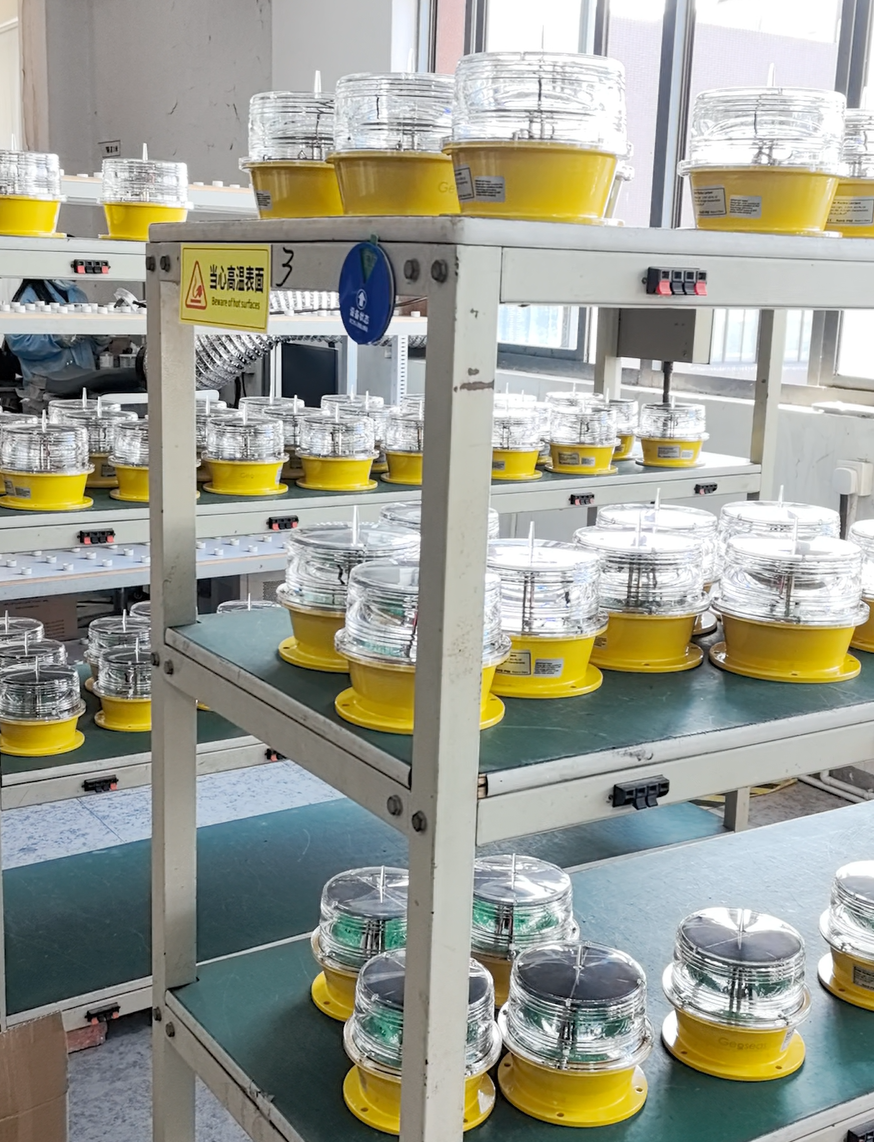Posted: 2024-11-07
In the vast expanse of the sky, where aircraft soar and dreams take flight, there is a silent yet crucial guardian - the solar aircraft warning light. These unassuming devices play a vital role in ensuring the safety of air travel and protecting the lives of countless passengers and crew members.
Solar aircraft warning lights are a remarkable combination of innovation and practicality. Harnessing the power of the sun, these lights offer a sustainable and efficient way to warn aircraft of potential hazards. By using solar energy, they reduce the need for traditional power sources and help to minimize the environmental impact of aviation.
The technology behind solar aircraft warning lights is both sophisticated and reliable. The lights are equipped with high-quality solar panels that can efficiently convert sunlight into electrical energy. This energy is then stored in batteries, which power the lights during periods of darkness or low light. The lights are designed to be highly visible from a distance, with bright LEDs that emit a distinct color and pattern. This visibility is essential for pilots to identify potential obstacles and take appropriate action to avoid collisions.

One of the key advantages of solar aircraft warning lights is their durability. Built to withstand the harsh elements of the outdoors, these lights are designed to be weather-resistant and long-lasting. They can endure extreme temperatures, high winds, rain, snow, and even hail. This durability ensures that they continue to function reliably even in the most challenging conditions, providing a constant source of safety for aircraft.
Moreover, solar aircraft warning lights are easy to install and require minimal maintenance. They can be mounted on a variety of structures, including towers, buildings, and poles. The installation process is straightforward and can be completed quickly, without the need for extensive electrical wiring or complex infrastructure. Once installed, the lights require little attention, as they are designed to operate automatically and require only occasional cleaning and inspection.
| Solar Aircraft Warning Lights | RT56 |
In addition to their practical benefits, solar aircraft warning lights also have environmental advantages. By using solar energy, they reduce the consumption of fossil fuels and help to lower carbon emissions. This is particularly important in today's world, where there is an increasing focus on sustainable development and reducing the environmental impact of human activities. Moreover, the use of solar energy also makes these lights more reliable and resilient, as they are not affected by power outages or disruptions in the electrical grid.
The importance of solar aircraft warning lights cannot be overstated. In an era where air travel is becoming increasingly common, it is essential to ensure the safety of aircraft and passengers. Solar aircraft warning lights play a crucial role in this regard, by providing a visible warning to pilots and helping to prevent collisions with obstacles on the ground. These lights are also important for protecting the environment and reducing the carbon footprint of aviation.
As technology continues to advance, we can expect to see even more innovative applications of solar aircraft warning lights. For example, future versions of these lights may be equipped with advanced sensors and communication systems, allowing them to interact with aircraft and provide real-time information about potential hazards. Additionally, the use of solar energy in aviation is likely to expand beyond warning lights, with solar-powered aircraft and airport facilities becoming more common in the years to come.
In conclusion, solar aircraft warning lights are a remarkable innovation that combines technology, practicality, and environmental sustainability. They are a beacon of safety in the skies, ensuring the smooth and safe operation of air travel. As we look towards the future, it is clear that these lights will continue to play an important role in protecting the lives of those who take to the skies and in promoting a more sustainable future for aviation.